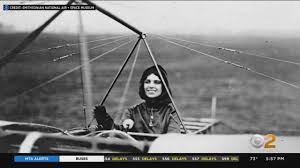2012 The trial of Anders Behring Breivik begins in Oslo
The right-wing extremist had killed 77 people, mostly teenagers, in Oslo with a car bomb and at a youth camp on Utøya island. After doubts about his mental health emerged before the trial, he was sentenced to 21 years in prison.
2003 Ten new member states are admitted to the European Union
The Treaty of Accession admitted countries including Poland, Cyprus, and the Czech Republic to the EU. Its original title contains 99 words.
1964 The Rolling Stones release their debut album
The album The Rolling Stones, released in the United States with the added title “England's Newest Hit Makers”, topped the UK charts for twelve weeks.
1917 Vladimir Lenin returns to Russia from exile
The communist revolutionary became leader of the Russian Soviet Federative Socialist Republic (SFSR) later that year. From 1922, he was the first Premier of the Soviet Union.
1912 Harriet Quimby flies across the English Channel
The U.S. aviator was the first woman who achieved this feat. She died at the age of 37 when her plane crashed in Massachusetts.





Comments
Post a Comment